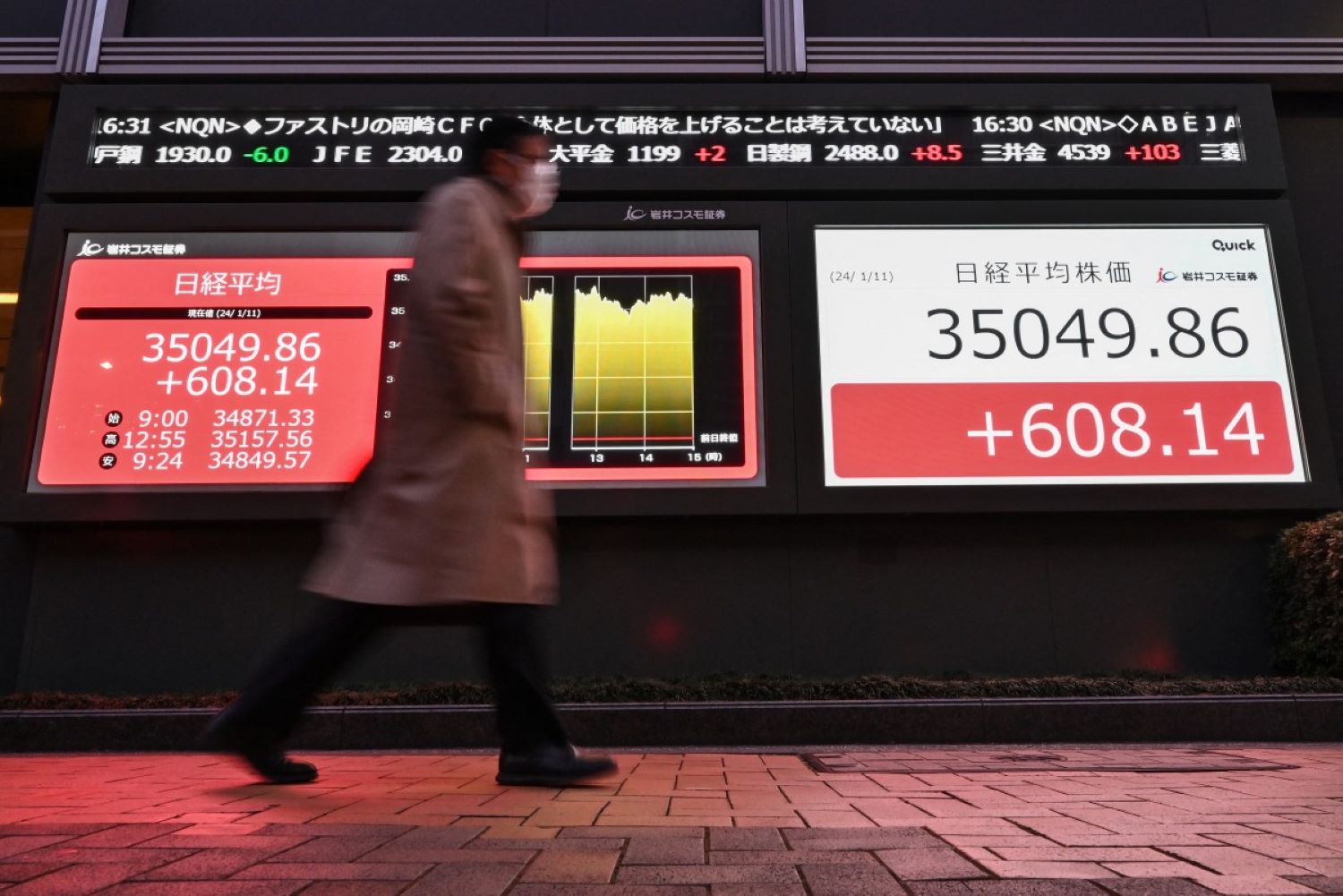LONDON, UK – Oil prices surged four percent on Friday after US and UK forces launched strikes against Iran-backed Houthi rebels following their attacks on ships in the Red Sea, fuelling worries about a wider conflict in the crude-rich region.
Tokyo and European stock markets ended the week with strong gains as traders brushed off data showing US inflation rose more than expected in December.
Wall Street had ended flat on Thursday, while the dollar was closing the week with gains against the euro.
Ahead of annual earnings from top US banks, focus was on the luxury sector after British fashion brand Burberry posted a profit warning, sending its share price sliding more than nine percent nearing the half-way stage in London.
That fed through to peers, with Gucci-owner Kering losing 1.7 percent in Paris, where LVMH was down 1.4 percent.
The oil market was in sharp focus as US and British forces struck rebel-held Yemen on Friday after weeks of attacks on Red Sea shipping by the Iran-backed Houthis, who say they are acting in solidarity with Palestinians in war-ravaged Gaza.
“The fear in the oil market is that the region is on an unpredictable escalating path, where at some point down the road supply of oil will indeed in the end be lost,” noted Bjarne Schieldrop, chief commodities analyst at SEB bank.
The Houthis have carried out a growing number of strikes on vessels in the Red Sea, a key international shipping route, since the Gaza war erupted in October.
The attacks have affected trade flows at a time when supply strains are putting upward pressure on inflation globally.
The jump in oil prices sparked concerns about a fresh spike in inflation that could complicate central bank efforts to cut interest rates.
The US consumer price index rose more than forecast in December, dealing a blow to prospects that the Federal Reserve would start its rate-cutting cycle in March.
Interest rates around the world had surged in 2022 and 2023 in a bid to cool decades-high inflation.
While rates of price rises have slowed, inflation remains above target for the Fed, European Central Bank and Bank of England.








